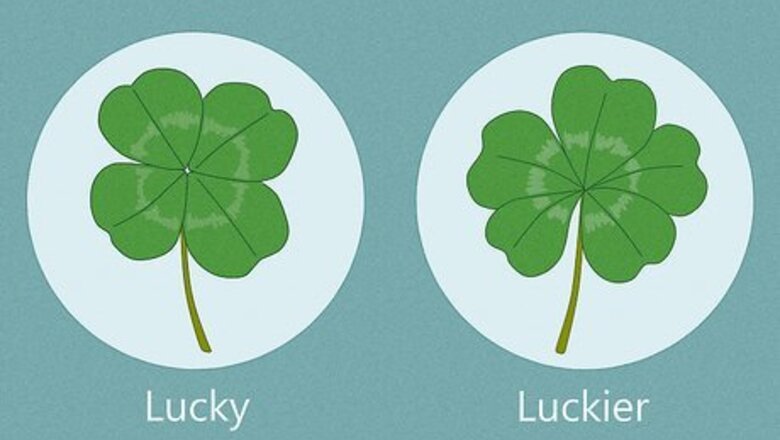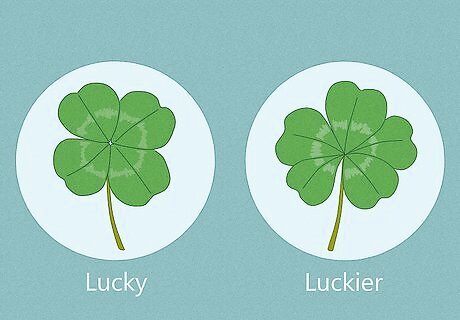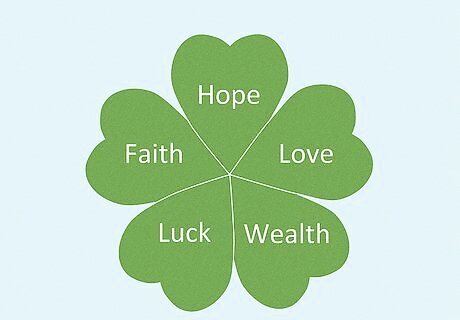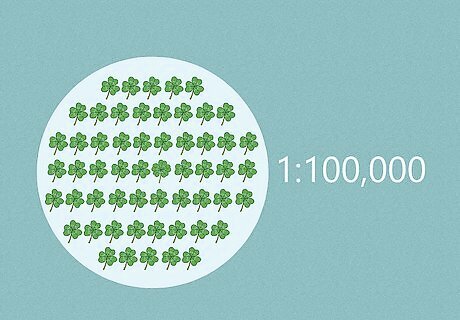
views
- According to superstition, a 5-leaf clover brings good luck to whoever finds one–even more luck than a four-leaf clover.
- Five-leaf clovers are also said to bring financial and spiritual wealth. They may also signify transitions and new adventures.
- It’s estimated that you have a 1 in 100,000 chance of finding a five-leaf clover, compared to a 1 in 10,000 chance of finding a four-leaf clover.
Is a five-leaf clover lucky?

Many believe that a five-leaf clover is even luckier than a four-leaf clover. Traditionally, four-leaf clovers are said to bring good luck to whoever finds them, probably because they’re so rare. Five-leaf clovers are even rarer, which means they bring even better luck. If you find one, take a risk! Ask out your crush, try something new, or just take a spin on a carnival claw machine—luck may be on your side. Or, preserve your clover to keep your good luck around for longer.
Meanings of a Five-Leaf Clover

Five-leaf clovers are said to bring wealth as well as luck. Five-leaf clovers aren’t just good luck tokens. They’re also commonly thought to bring wealth to whoever finds them. Who knows, you might find some cash on the ground, get a raise, or even have a risky investment pay off. Spiritually, a five-leaf clover may also signify transitions, new adventures, or new travels.

Each leaf on a five-leaf clover has its own special meaning. It’s sometimes said that the leaves of a three-leaf clover represent faith, hope, and love, respectively. The fourth leaf on a four-leaf clover is often said to represent luck. A five-leaf clover has all those, plus an extra leaf that some say represents wealth. Whether that’s financial wealth, spiritual wealth, or another kind is up to you to find out. A sixth leaf is said to represent fame or notoriety.
How rare is a five-leaf clover?

Five-leaf clovers are incredibly rare. It’s estimated that you only have about a 1 in 10,000 chance of finding a four-leaf clover. That’s already a pretty rare find, so imagine how much rarer a five-leaf clover must be. Some estimate that your chances of finding a five-leaf clover is about 1 in 100,000! No wonder they’re said to bring extra good luck. It’s not actually as hard as you might think to find a four-leaf clover, or even a five-leaf clover. Since they’re so small, your eyes can scan a huge number at a time. It just takes a little practice, patience, and a sharp eye! Also, a single four- or five-leaf clover is actually part of a much bigger root system growing underground, which means if you find 1, you’re more likely to find more with the same mutation nearby.
How does a five-leaf clover form?

Five-leaf clovers are the result of a genetic mutation in clover plants. When you think of shamrocks or four- or five-leaf clovers, you’re probably thinking of the white clover plant. Occasionally, as the white clover reproduces, mutations occur in its genes that tell the clover to put out more than its usual 3 leaves. These mutations can be the result of environmental factors, like the amount of minerals in the soil, or even just the result of random chance. In 2019, a Japanese high schooler performed an experiment to see if she could grow her own four-leaf clovers. She customized the chemicals in her growing soil and found that she actually produced more five- and six-leaf clovers than she did four-leaf clovers. The world record for the number of leaves found on a clover is a whopping 56, on a clover found in Japan by a man named Shigeo Obara.


















Comments
0 comment